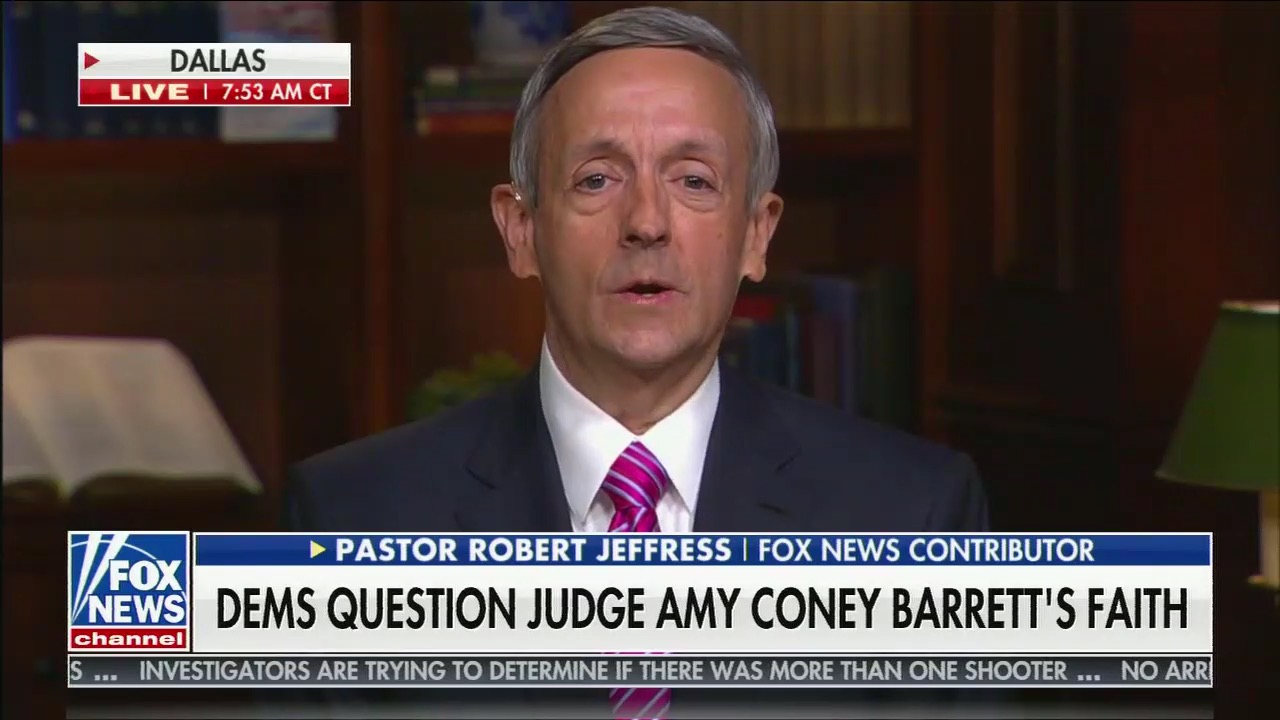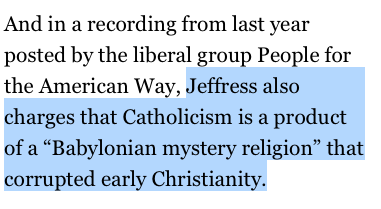



But this shamelessness goes all the way to the top. This piece by McCay Coppins should enrage the conservative evangelical Christians who love Trump but it won’t:
One day in 2015, Donald Trump beckoned Michael Cohen, his longtime confidant and personal attorney, into his office. Trump was brandishing a printout of an article about an Atlanta-based megachurch pastor trying to raise $60 million from his flock to buy a private jet. Trump knew the preacher personally—Creflo Dollar had been among a group of evangelical figures who visited him in 2011 while he was first exploring a presidential bid. During the meeting, Trump had reverently bowed his head in prayer while the pastors laid hands on him. Now he was gleefully reciting the impious details of Dollar’s quest for a Gulfstream G650.
Trump seemed delighted by the “scam,” Cohen recalled to me, and eager to highlight that the pastor was “full of shit.”
“They’re all hustlers,” Trump said.The president’s alliance with religious conservatives has long been premised on the contention that he takes them seriously, while Democrats hold them in disdain. In speeches and interviews, Trump routinely lavishes praise on conservative Christians, casting himself as their champion. “My administration will never stop fighting for Americans of faith,” he declared at a rally for evangelicals earlier this year. It’s a message his campaign will seek to amplify in the coming weeks as Republicans work to confirm Amy Coney Barrett—a devout, conservative Catholic—to the Supreme Court.
But in private, many of Trump’s comments about religion are marked by cynicism and contempt, according to people who have worked for him. Former aides told me they’ve heard Trump ridicule conservative religious leaders, dismiss various faith groups with cartoonish stereotypes, and deride certain rites and doctrines held sacred by many of the Americans who constitute his base.
Reached for comment, a White House spokesman said that “people of faith know that President Trump is a champion for religious liberty and the sanctity of life, and he has taken strong actions to support them and protect their freedom to worship. The president is also well known for joking and his terrific sense of humor, which he shares with people of all faiths.”
From the outset of his brief political career, Trump has viewed right-wing evangelical leaders as a kind of special-interest group to be schmoozed, conned, or bought off, former aides told me. Though he faced Republican primary opponents in 2016 with deeper religious roots—Ted Cruz, Mike Huckabee—Trump was confident that his wealth and celebrity would attract high-profile Christian surrogates to vouch for him.
“His view was ‘I’ve been talking to these people for years; I’ve let them stay at my hotels—they’re gonna endorse me. I played the game,’” said a former campaign adviser to Trump, who, like others quoted in this story, spoke on the condition of anonymity to describe private conversations.
It helped that Trump seemed to feel a kinship with prosperity preachers—often evincing a game-recognizes-game appreciation for their hustle. The former campaign adviser recalled showing his boss a YouTube video of the Israeli televangelist Benny Hinn performing “faith healings,” while Trump laughed at the spectacle and muttered, “Man, that’s some racket.” On another occasion, the adviser told me, Trump expressed awe at Joel Osteen’s media empire—particularly the viewership of his televised sermons.
Of course he did. He is one of them — a con artist.